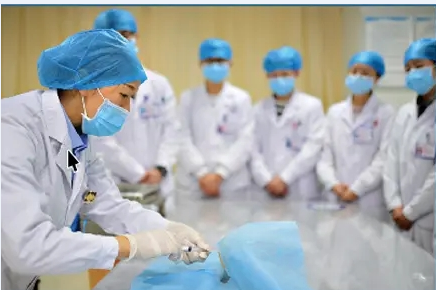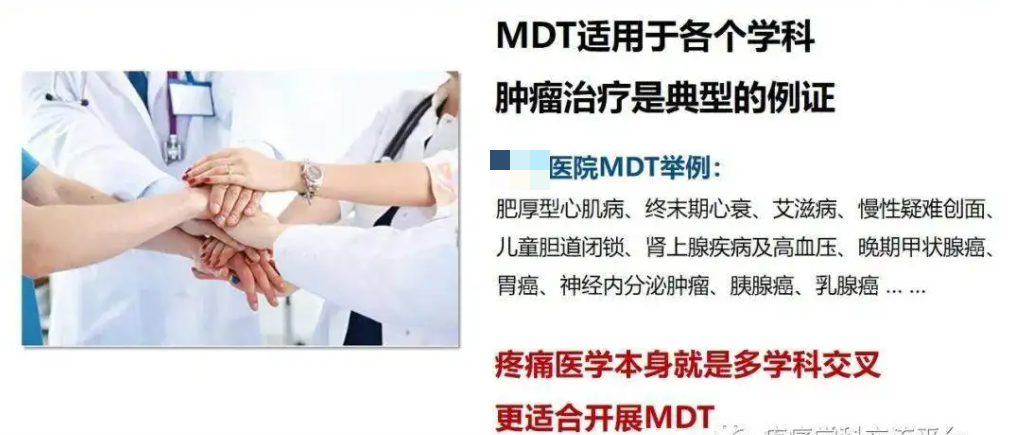Tumor Minimally invasive and Interventional Committee of Chengdu Hi-tech Medical Association is a newly established secondary academic branch organization. In the short period of one year since the establishment of the special committee, a team led by Professor Duan Ping has been closely united with experts and scholars who have outstanding academic research, scientific and technological innovation and rich clinical experience in the field of minimally invasive tumor intervention in central residential medical institutions, provincial medical institutions, municipal (prefectural) medical institutions and medical institutions at all levels in Chengdu. It has actively carried out a series of work highlighting MDT (that is, multidisciplinary consultation), which has started a good start for the coordinated development of regional tumor cause.

The tumor minimally invasive and interventional committee of Chengdu High-tech Medical Association is different in the composition of experts. Among them are specialists in general oncology, but also specialists in minimally invasive and interventional and other disciplines. Minimally invasive and intervention is only one of its work. Due to the proficiency in the comprehensive treatment of tumor based on chemotherapy, it is natural to incorporate minimally invasive and intervention into the comprehensive treatment system. Experts claim that they are "experts of MDT with tumor", and the oncology department is called "department with MDT with tumor".
Experts of the committee said that MDT is an "organic" combination that combines the expertise of various disciplines to create effective treatment for patients, rather than a combination of various measures. If a department has a variety of different talents, or experts with a variety of treatment techniques, this is the best. Experts say: bring MDT is a new term, perhaps should be recommended around the new term, we can discuss the new term is right or not. Although it is eternal work to understand and master new knowledge and make up for one's shortcomings. But "never too old to learn" is not only the mastery of new knowledge, but also the integration of old and new knowledge.

At the beginning of the committee, experts worked together to conduct a survey of the oncology department's ownership and completion of minimally invasive techniques. The survey was somewhat flawed and did not cover very basic oncology units. There may be two reasons: first, there are no special committee members in the oncology department at the special level, so there is no way to collect questionnaires; Second, even if there are members, they may not be familiar with the questionnaire form, which affects the collection of questionnaires. However, the preliminary conclusion is quite interesting: first, interventional therapy should be offered in oncology departments without radiotherapy equipment, first of all, needle biopsy and minimally invasive therapy, which can be completed by CT or B-ultrasound. The second is vascular intervention of DSA, which can complete the diagnosis and retain the series of tumors mainly liver cancer, avoiding only passive medical oncology treatment. The means are diversified, which is also MDT. Third, to carry out minimally invasive treatment in oncology departments that already have radiotherapy equipment and are relatively perfect, can make the MDT work of patients more perfect.
At the general meeting of the special committee, Director Duan Ping announced the results of the investigation, which caused a heated discussion among the members. People said that perhaps the results should be reported in writing to the National Health Commission and the Cancer Quality Control Center to provide a supporting basis for the government's health decisions. Of course, we first integrated the opinions of all parties and highlighted the data collection of grassroots tumor units, hoping that this second investigation will be more detailed, more targeted, and the results will be more convincing.
The "Bronchial artery infusion chemotherapy under immunochemotherapy for extensive small cell lung cancer" proposed by Jia Yuming, vice chairman of the committee, is for those patients with extensive small cell lung cancer who can only use EP chemotherapy. The addition of PD-1 and PD-L1 greatly improved the prognosis of the patients, but the local control rate of the tumor was not very good, and the PFS after 6 months continued to decline, which seriously affected the survival of the patients. At present, the Thoracic Oncology Department of West China Hospital has carried out relatively low dose "immunoradiotherapy" for extensive small-cell lung cancer, which has significantly increased the local control rate of the tumor. However, faced with larger tumor volume, radiotherapy is still difficult to some extent, and some medical units do not have radiotherapy equipment, so the infusion chemotherapy of bronchial artery or all tumor blood supply arteries can be one of the options. Especially for patients with poor physical conditions, even if the dose of chemotherapy is reduced by half, to a quarter, the local concentration of the tumor is still very high, far exceeding the concentration of drugs in the tumor during systemic administration. In this way, the local drug concentration is high, the therapeutic effect can be improved, while the total drug dose is low, and the drugs are all sent to the tumor tissue. The chemotherapy drugs in the normal tissues of the whole body are very few, and the side effects are very low. Using the military strategic thinking analogy, it is called "concentrating superior forces to kill the war of annihilation". With its dispersed chemotherapy drugs, it is better to concentrate firepower to "cut off one finger". The treatment of extensive small-cell lung cancer is the treatment of "the enemy is strong while the enemy is weak".

Director Jia Yuming's speech was praised and affirmed by the committee members. Director Duan Ping also hoped that everyone would take out the previous case studies of interventionic treatment of extensive small-cell lung cancer to add supporting materials for our project. At the same time, it is better to protect patients' rights and interests as much as possible through ethical approval and legal compliance. The experts are hard at work at the moment.
The special committee of Minimally invasive tumor Intervention of High-tech Medical Association includes Professor Liao Zhengyin from West China Hospital, Professor Li Zhengwen from Sichuan Cancer Hospital and other interventional celebrities, but most of them are oncologists. Most doctors are experts who work hard to complete comprehensive tumor treatment such as radiotherapy and chemotherapy at ordinary times and have interventional therapy technology. The nature of their work and educational background determine the depth of their understanding of tumor MDT. Both minimally invasive and interventional techniques reflect "hands-on ability". Perhaps hands-on people prefer to work together, research together, and provide the basis for government decisions together.
Experts all hope that the committee on Minimally Invasive Cancer and Intervention can make more contributions to the MDT collaboration of cancer, highlight the multidisciplinary collaboration of minimally invasive cancer intervention, and create more new highlights of innovative tumor treatment collaboration.








